Delve into the Profound World of "The Machine Stops" by E. M. Forster

4.3 out of 5
| Language | : | English |
| File size | : | 696 KB |
| Text-to-Speech | : | Enabled |
| Screen Reader | : | Supported |
| Enhanced typesetting | : | Enabled |
| Word Wise | : | Enabled |
| Print length | : | 48 pages |
| Lending | : | Enabled |
In an era marked by rapid technological advancements, E. M. Forster's "The Machine Stops" stands as a timeless and thought-provoking exploration of humanity's relationship with technology. Published in 1909, this short story depicts a dystopian future where society has become utterly dependent on a vast subterranean Machine that provides all the necessities of life, from food and shelter to entertainment and communication.
A World of Isolation and Artificiality
Forster's vision of the future is both awe-inspiring and deeply unsettling. The Machine has become an all-pervasive presence, catering to every need and desire of its inhabitants. People live in isolated cubicles, connected to the Machine through a system of tubes and panels. They communicate via holographic images, known as "phantoms," and rarely venture outside their confined spaces.

As a result, human relationships have become shallow and superficial. Physical contact is obsolete, and emotional bonds are replaced by artificial substitutes. Friendships and romances are conducted through the exchange of "phantoms," creating a sense of emotional distance and detachment.
The Erosion of Individuality and Creativity
Forster's story also highlights the corrosive effects of machine dependence on human individuality. The Machine provides everything, eliminating the need for creativity, critical thinking, and personal growth. People become passive consumers, utterly reliant on the Machine for their every desire. Their thoughts and actions become homogenized, stifling the development of unique perspectives and the expression of individuality.

The Absence of Nature and the Loss of Connection
Another profound aspect of "The Machine Stops" is its exploration of humanity's estrangement from nature. The Machine has created an artificial environment, devoid of sunlight, fresh air, and the beauty of the natural world. Forster suggests that this severance from nature has dire consequences for human well-being and spiritual growth. Without the restorative power of nature, people become spiritually impoverished and lose their sense of purpose and meaning.

A Wake-Up Call for the Modern World
Forster's "The Machine Stops" serves as a cautionary tale for the modern world, where technology is rapidly reshaping our lives. While technology offers undeniable benefits, it is crucial to approach its transformative powers with both awe and caution.
Forster urges us to question our reliance on technology and to strive for a balance between the virtual and the real world. He reminds us of the importance of human relationships, the value of individuality, and the regenerative power of nature.
E. M. Forster's "The Machine Stops" is a masterpiece of dystopian literature that continues to resonate with readers today. It is a thought-provoking exploration of technology's impact on human society, offering insights into the potential dangers of machine dependence, the erosion of individuality, and the severance from nature.
As we navigate the ever-evolving landscape of technology, Forster's story serves as a timely reminder to approach these advancements with both wonder and skepticism. It encourages us to embrace the benefits of technology while safeguarding our humanity, our connections with others, and our connection to the natural world.
4.3 out of 5
| Language | : | English |
| File size | : | 696 KB |
| Text-to-Speech | : | Enabled |
| Screen Reader | : | Supported |
| Enhanced typesetting | : | Enabled |
| Word Wise | : | Enabled |
| Print length | : | 48 pages |
| Lending | : | Enabled |
Do you want to contribute by writing guest posts on this blog?
Please contact us and send us a resume of previous articles that you have written.
 Book
Book Novel
Novel Page
Page Chapter
Chapter Text
Text Story
Story Genre
Genre Reader
Reader Library
Library Paperback
Paperback E-book
E-book Magazine
Magazine Newspaper
Newspaper Paragraph
Paragraph Sentence
Sentence Bookmark
Bookmark Shelf
Shelf Glossary
Glossary Bibliography
Bibliography Foreword
Foreword Preface
Preface Synopsis
Synopsis Annotation
Annotation Footnote
Footnote Manuscript
Manuscript Scroll
Scroll Codex
Codex Tome
Tome Bestseller
Bestseller Classics
Classics Library card
Library card Narrative
Narrative Biography
Biography Autobiography
Autobiography Memoir
Memoir Reference
Reference Encyclopedia
Encyclopedia R Raman
R Raman Eleanor Shipley Duckett
Eleanor Shipley Duckett Edgar A Whitney
Edgar A Whitney Shannon Jensen
Shannon Jensen Ed Ayres
Ed Ayres Duncan Wells
Duncan Wells Sandhya Rani Jha
Sandhya Rani Jha Eduard Habsburg Lothringen
Eduard Habsburg Lothringen Eleanor Wint
Eleanor Wint Edgar Rice Burroughs
Edgar Rice Burroughs Robert Gandt
Robert Gandt Joseph Plumb Martin
Joseph Plumb Martin Ella Blake
Ella Blake Elise Broach
Elise Broach Elizabeth Dowling Taylor
Elizabeth Dowling Taylor Edmond Scannell
Edmond Scannell Sara Secora
Sara Secora J Scott Bestul
J Scott Bestul Edward J Denecke
Edward J Denecke Eileen Mueller
Eileen Mueller
Light bulbAdvertise smarter! Our strategic ad space ensures maximum exposure. Reserve your spot today!

 Milan KunderaUnveiling the Legacy of Terry Pratchett: A Literary Masterpiece in "Forever...
Milan KunderaUnveiling the Legacy of Terry Pratchett: A Literary Masterpiece in "Forever... Julio Ramón RibeyroFollow ·9k
Julio Ramón RibeyroFollow ·9k Reginald CoxFollow ·17.8k
Reginald CoxFollow ·17.8k Ken FollettFollow ·8.5k
Ken FollettFollow ·8.5k Demetrius CarterFollow ·18.9k
Demetrius CarterFollow ·18.9k Rob FosterFollow ·9.1k
Rob FosterFollow ·9.1k Jay SimmonsFollow ·13.7k
Jay SimmonsFollow ·13.7k Miguel de CervantesFollow ·4.2k
Miguel de CervantesFollow ·4.2k Carlos DrummondFollow ·3k
Carlos DrummondFollow ·3k
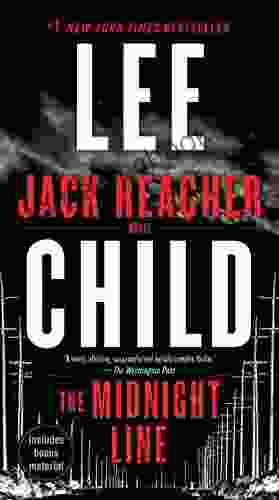
 Clarence Brooks
Clarence BrooksUncover the Secrets in the Dead of Night: Dive into Lee...
Step into the heart-stopping world of Jack...
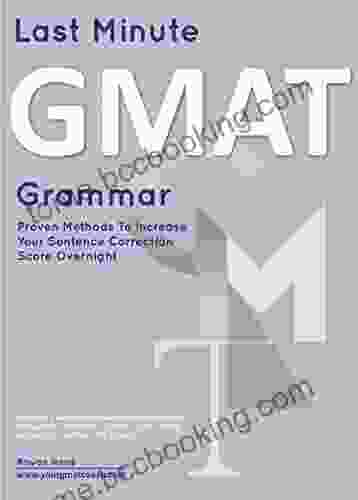
 Clay Powell
Clay PowellAce the GMAT Grammar Section: Your Last-Minute...
The GMAT is a challenging...
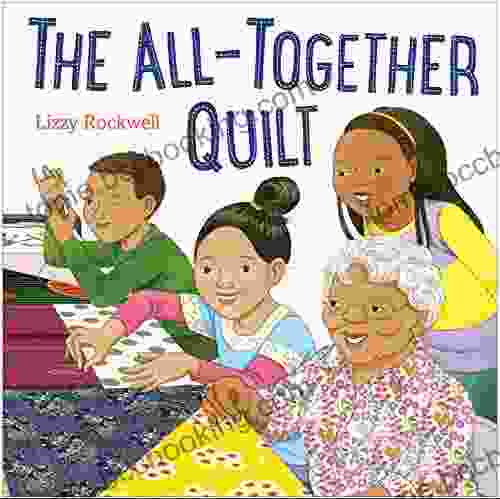
 Salman Rushdie
Salman RushdieEmbark on a Heartwarming Journey with "The All Together...
: Immerse yourself in the charming world of...
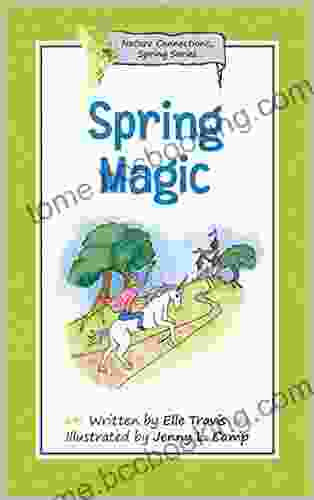
 Dawson Reed
Dawson ReedSpring Magic: Stunningly Illustrated Fun for Kids to...
Welcome to the Enchanting World of...
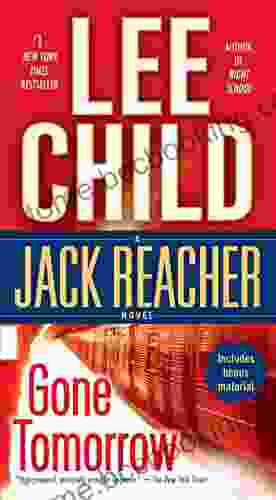
 Bradley Dixon
Bradley DixonGone Tomorrow: A Gripping Thriller by Lee Child that Will...
In the literary realm of thrillers, few...
4.3 out of 5
| Language | : | English |
| File size | : | 696 KB |
| Text-to-Speech | : | Enabled |
| Screen Reader | : | Supported |
| Enhanced typesetting | : | Enabled |
| Word Wise | : | Enabled |
| Print length | : | 48 pages |
| Lending | : | Enabled |












